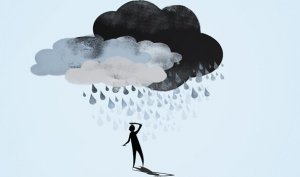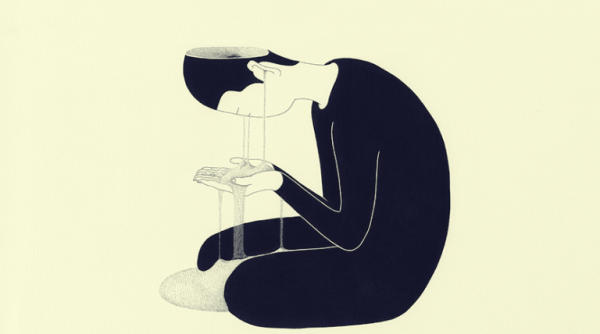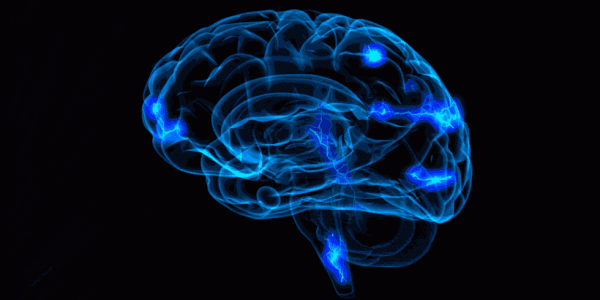Memory Loss from Depression: how Does it Work?


Written and verified by the psychologist Valeria Sabater
Memory loss from depression is a fact. A depressed brain disconnects you from reality like a ship lost at sea. It drags you into its neurochemical storm.
It shuts you into a cave where the outside world becomes scary and hazy, where it’s hard to concentrate, remember things, react, think, keep up…
When we think of depression, most of us immediately think of someone lying down on their couch or bed with the blinds down. We see it as a psychological disorder that involves being lethargic, downhearted, and defenseless.
But there are actually a lot of cases of “portable” depression. Thousands of people go through their daily lives with this invisible wound interfering in just about everything they do.
Depression has a negative effect on your episodic memory, which is your memory things that have happened to you.
That’s because depression is more than just an emotional state. It’s also internal disorder, physical exhaustion, apathy, and lack of enthusiasm. It’s hopelessness coming into your mind like a Trojan horse. But above all, it’s a deterioration of your cognitive abilities.
This last thing is an extremely important part of depression that people don’t talk about much. But it’s something we absolutely have to think about to develop a more whole, fitting, and sensitive kind of therapy.

Memory loss from depression: what’s happening to me?
Trouble understanding signals, and even more trouble sending them. Problems understanding what you read or hear. Having someone’s name on the tip of your tongue but not being able to remember it. Going blank when you’re driving and not remembering where you’re going.
Realizing that people get angry with you because you don’t pay attention to them when they talk. Living a more and more misunderstood life with the people around you because you can’t focus, remember what they tell you, make simple connections, etc.
As you can see, memory loss from depression is about more than just simple forgetfulness. It means being stuck in a mental fog where everything seems too far away or too hazy to focus on.
You can’t understand what’s happening, where you are, or what you’re supposed to do. All that leads to discomfort, lack of social understanding, and worse: it makes you even more downhearted.
But why does it all happen? Where do all these exhausting processes come from?
“Speed up” neurons
Stress is generally just one more factor that increases your risk of depression. Feeling threatened, scared, pressured, alert, or anxious…Those things all make your body release more glucocorticoids, like cortisol (the most common and well-known one).
A brain-controlled by cortisol works very differently. It “speeds up” your neurons and leads to mental processes like brooding, worry, obsessive thoughts, etc… Something very intense happens because of all this hyperactivity in your brain. It wants to reduce overactivity, exhaustion, and neuronal cell death, so those cells start to “disconnect.”
That means your brain stops sending information as quickly. You forget things, your memory gets worse, and it starts to slow down and go into “pause” mode.

The hippocampus gets smaller
Memory loss from depression also has roots in a specific brain structure: the hippocampus. Among other things, this part of your brain deals with storing your memory. As strange as it might sound, this is the area that cortisol affects the most. It’s almost like a bullseye for all the toxic parts of glucocorticoids. If your depression is chronic, or you have recurring episodes, your hippocampus will just get smaller and smaller.
But it’s worth mentioning that the hippocampus also has a very high plasticity. You can get it back to its original size through therapy, memory exercises, and cognitive strategies. That way your attention, memory, etc will go back to normal too.
Dopaminergic pathways
One sad reality that comes with depression is anhedonia, an inability to feel pleasure. Because of this psychological disorder, you can’t enjoy even the simplest things. You stop feeling any interest, pleasure, motivation, or energy when it comes to starting new projects, leaving the house, working, connecting…
Dopaminergic pathways are the parts of the brain that reward you for those kinds of things (the things your brain sees as positive). But a depressed brain is one where dopamine isn’t working properly anymore.
That changes everything. You lose your motivation, and more importantly, not having enough of this neurotransmitter also brings along changes to your serotonergic, glutamatergic, opioid, and endocannabinoid systems.
When all those neurochemical processes stop working properly, you lose your curiosity and your ability to learn, focus, store new information, remember it, make decisions…

So what can you do?
Memory loss from depression is a fact. But everyone experiences it in their own way. For example, we know that with light and moderate depression, you can recover from the cognitive deficit through cognitive therapy, exercises, support groups, etc.
But in more serious cases you need a multidisciplinary approach. This is where you would combine medication with psychological therapy, memory-based therapy, and even dietary supplements that have magnesium and B vitamins.
Of course, you can never forget about how important it is to have support from the people around you. Understanding, intimacy, and sensitivity towards someone with depression is a major key to helping them recover.
This text is provided for informational purposes only and does not replace consultation with a professional. If in doubt, consult your specialist.








